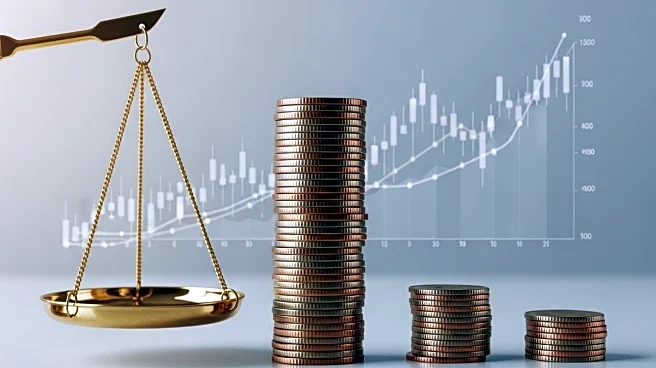What is the story about?
What's Happening?
A recent analysis explores the hypothetical scenario of redistributing the wealth of the top 10 billionaires equally among U.S. citizens. The combined net worth of these billionaires, including figures like Elon Musk and Jeff Bezos, amounts to approximately $1.8 trillion. If this wealth were distributed equally among the entire U.S. population of 342 million, each person would receive about $5,263. If distributed only among adults, the amount would increase to $6,742 per person. The analysis also considers the redistribution of the total wealth of all global billionaires, which is estimated at $16.1 trillion, resulting in a significantly higher amount per person.
Why It's Important?
The redistribution of wealth from billionaires could have significant implications for economic inequality in the U.S. While a one-time distribution might not have a lasting impact on the economy, it could provide immediate financial relief to individuals, potentially reducing personal debt or increasing savings. However, the influx of money could also lead to inflationary pressures, particularly in sectors like automotive sales, as more people might choose to make large purchases simultaneously. The scenario highlights the ongoing debate about wealth inequality and the potential benefits and drawbacks of wealth redistribution.
What's Next?
If such a redistribution were to occur, it would likely necessitate accompanying measures such as financial education initiatives to ensure individuals can manage the windfall effectively. Without proper financial literacy, the long-term benefits of such a redistribution might be limited. Additionally, policymakers and economists would need to consider the broader economic impacts, including potential inflation and shifts in consumer behavior.
Beyond the Headlines
The discussion around wealth redistribution also touches on ethical and cultural dimensions, such as the role of billionaires in society and the responsibilities of wealth. It raises questions about the balance between individual success and societal equity, and whether systemic changes are needed to address economic disparities. Long-term shifts could include increased advocacy for financial education and policy reforms aimed at reducing wealth inequality.
















